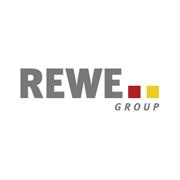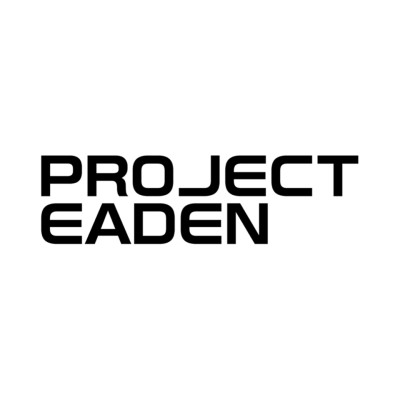Project Eaden: Revolutionizing Plant-Based Meat with Fiber Spinning Technology
January 23, 2025, 3:36 am
In the heart of Berlin, a culinary revolution is brewing. Project Eaden, a startup founded in 2022, is poised to change the way we think about plant-based meat. With a recent €15 million ($15.6 million) Series A funding round, the company is ready to launch its ultra-realistic plant-based ham in Germany. This funding brings their total to €27 million ($28.1 million), a testament to the growing interest in sustainable food alternatives.
The meat industry is a heavyweight in the climate change arena, responsible for 12% of global greenhouse gas emissions. As consumers become more aware of their environmental impact, the demand for plant-based alternatives is surging. Yet, many existing products fall short in taste and texture, leaving consumers skeptical. Project Eaden aims to bridge this gap.
The founders, Jan Wilmking and Dr. David Schmelzeisen, bring unique expertise to the table. Wilmking, a former executive at Zalando, and Schmelzeisen, a textile engineer, have combined their skills to create a product that mimics the mouthfeel and flavor of traditional meat. Their proprietary fiber spinning technology, inspired by the textile industry, allows them to produce whole cuts of meat that are not only realistic but also scalable and cost-effective.
The fiber spinning process is a marvel of engineering. It involves creating ultra-thin fibers from plant proteins, which are then spun into a structure that resembles animal muscle fibers. This method allows for the creation of products with varying textures and flavors, catering to diverse consumer preferences. The result? A plant-based ham that could fool even the most discerning meat lovers.
Project Eaden's initial product launch will take place in 3,800 REWE supermarkets across Germany in mid-2025. This partnership with REWE Group, a major retail player, is a significant step toward mainstream acceptance of plant-based meats. The collaboration is not just about distribution; it’s about setting a new standard in the alternative meat market. REWE has dedicated shelf space for plant-based products, making them easily accessible to consumers.
The startup's technology is not just innovative; it’s also environmentally friendly. Each kilogram of Project Eaden’s product can reduce greenhouse gas emissions by up to 20 kg CO₂-eq. This is equivalent to driving 100 kilometers in a fossil fuel car. Additionally, the production process conserves water and land, making it a sustainable choice for the planet.
Despite the challenges facing the alternative protein sector, including a 24% drop in investment in 2023, Project Eaden has captured the attention of key investors. Planet A Ventures and DeepTech & Climate Fonds are among the backers, recognizing the potential for growth in this niche market. The funding will enable Project Eaden to scale its operations and expand its product line, which includes plans for bacon, pork loins, and beef steaks.
The timing of this launch is crucial. Germany is a leader in the plant-based meat market, accounting for 46% of meat alternative sales in Europe. As health concerns rise and dietary guidelines shift toward plant-based foods, consumers are increasingly looking for alternatives to traditional meat. The younger generation, particularly Gen Z, is more open to trying plant-based options, driving demand for innovative products.
However, challenges remain. Many consumers still express dissatisfaction with the taste and texture of plant-based meats. Over 60% of Gen Z consumers in Germany are unhappy with current offerings. Project Eaden aims to change this narrative by delivering products that meet the expectations of even the most skeptical consumers. The company’s focus on taste, texture, and nutrition is central to its mission.
As Project Eaden prepares for its product launch, it is also expanding its team across various departments, including sales, marketing, and engineering. This growth will support the company’s ambitious plans to broaden its product range and enter new European markets.
The landscape of plant-based meat is evolving rapidly. While many startups are vying for a piece of the pie, Project Eaden’s unique approach sets it apart. By leveraging textile technology, the company is not just creating meat alternatives; it’s redefining what plant-based meat can be.
In a world where climate change looms large, Project Eaden is a beacon of hope. Its innovative products offer a delicious and sustainable alternative to traditional meat, making it easier for consumers to make environmentally conscious choices. As the company gears up for its launch, the future looks bright for Project Eaden and the plant-based meat industry as a whole.
In conclusion, Project Eaden is not just another player in the alternative meat market. It’s a game-changer, armed with cutting-edge technology and a commitment to quality. As consumers increasingly seek sustainable options, Project Eaden stands ready to meet the challenge, one fiber at a time. The revolution in plant-based meat is here, and it’s ultra-realistic.
The meat industry is a heavyweight in the climate change arena, responsible for 12% of global greenhouse gas emissions. As consumers become more aware of their environmental impact, the demand for plant-based alternatives is surging. Yet, many existing products fall short in taste and texture, leaving consumers skeptical. Project Eaden aims to bridge this gap.
The founders, Jan Wilmking and Dr. David Schmelzeisen, bring unique expertise to the table. Wilmking, a former executive at Zalando, and Schmelzeisen, a textile engineer, have combined their skills to create a product that mimics the mouthfeel and flavor of traditional meat. Their proprietary fiber spinning technology, inspired by the textile industry, allows them to produce whole cuts of meat that are not only realistic but also scalable and cost-effective.
The fiber spinning process is a marvel of engineering. It involves creating ultra-thin fibers from plant proteins, which are then spun into a structure that resembles animal muscle fibers. This method allows for the creation of products with varying textures and flavors, catering to diverse consumer preferences. The result? A plant-based ham that could fool even the most discerning meat lovers.
Project Eaden's initial product launch will take place in 3,800 REWE supermarkets across Germany in mid-2025. This partnership with REWE Group, a major retail player, is a significant step toward mainstream acceptance of plant-based meats. The collaboration is not just about distribution; it’s about setting a new standard in the alternative meat market. REWE has dedicated shelf space for plant-based products, making them easily accessible to consumers.
The startup's technology is not just innovative; it’s also environmentally friendly. Each kilogram of Project Eaden’s product can reduce greenhouse gas emissions by up to 20 kg CO₂-eq. This is equivalent to driving 100 kilometers in a fossil fuel car. Additionally, the production process conserves water and land, making it a sustainable choice for the planet.
Despite the challenges facing the alternative protein sector, including a 24% drop in investment in 2023, Project Eaden has captured the attention of key investors. Planet A Ventures and DeepTech & Climate Fonds are among the backers, recognizing the potential for growth in this niche market. The funding will enable Project Eaden to scale its operations and expand its product line, which includes plans for bacon, pork loins, and beef steaks.
The timing of this launch is crucial. Germany is a leader in the plant-based meat market, accounting for 46% of meat alternative sales in Europe. As health concerns rise and dietary guidelines shift toward plant-based foods, consumers are increasingly looking for alternatives to traditional meat. The younger generation, particularly Gen Z, is more open to trying plant-based options, driving demand for innovative products.
However, challenges remain. Many consumers still express dissatisfaction with the taste and texture of plant-based meats. Over 60% of Gen Z consumers in Germany are unhappy with current offerings. Project Eaden aims to change this narrative by delivering products that meet the expectations of even the most skeptical consumers. The company’s focus on taste, texture, and nutrition is central to its mission.
As Project Eaden prepares for its product launch, it is also expanding its team across various departments, including sales, marketing, and engineering. This growth will support the company’s ambitious plans to broaden its product range and enter new European markets.
The landscape of plant-based meat is evolving rapidly. While many startups are vying for a piece of the pie, Project Eaden’s unique approach sets it apart. By leveraging textile technology, the company is not just creating meat alternatives; it’s redefining what plant-based meat can be.
In a world where climate change looms large, Project Eaden is a beacon of hope. Its innovative products offer a delicious and sustainable alternative to traditional meat, making it easier for consumers to make environmentally conscious choices. As the company gears up for its launch, the future looks bright for Project Eaden and the plant-based meat industry as a whole.
In conclusion, Project Eaden is not just another player in the alternative meat market. It’s a game-changer, armed with cutting-edge technology and a commitment to quality. As consumers increasingly seek sustainable options, Project Eaden stands ready to meet the challenge, one fiber at a time. The revolution in plant-based meat is here, and it’s ultra-realistic.


